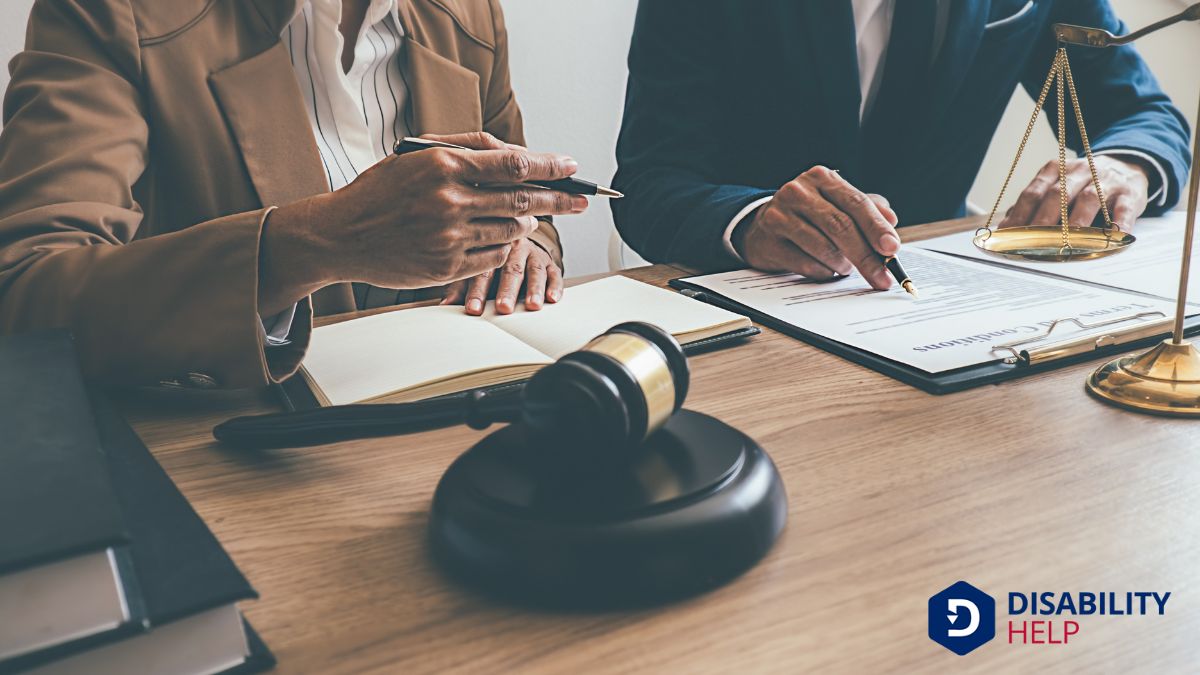If you’re dealing with a lawsuit or legal dispute related to your health, injury, work, or benefits, you may hear the word “deposition” and wonder what it means and whether you’re required to participate.
A deposition is sworn, out-of-court testimony used during the discovery phase of a case. Attorneys ask questions, a court reporter records your answers, and the transcript (and sometimes video) may later be used to evaluate the case or, in limited situations, in court.
This guide explains what is a deposition is, the purpose of a deposition, what happens during one, and the key question many people search for: are depositions mandatory?
Note: This article provides general information, not legal advice. Rules can vary by state and by court. If you’ve received a deposition notice or subpoena, consider speaking with an attorney about your specific situation.
Key Takeaways
- A deposition is sworn testimony taken outside of court as part of the discovery process.
- The purpose of a deposition is to gather facts, evaluate credibility, preserve testimony, and reduce surprises later in the case.
- Depositions can be required depending on whether you’re a party to the case and whether you were served properly (e.g., notice vs. subpoena).
- Not showing up (or refusing to cooperate) can lead to court action or sanctions in many cases.
- Preparation matters: listening carefully, answering truthfully, and working with counsel can protect you and keep your testimony clear.
What Is A Deposition?

A deposition is a formal question-and-answer session where a witness (called the deponent) gives testimony under oath outside the courtroom. It is part of the discovery process, meaning both sides are collecting information before trial or settlement.
Depositions typically happen in a lawyer’s office, conference room, or remotely by video. A court reporter creates an official transcript, and sometimes a videographer records the session as well.
Purpose Of A Deposition
The purpose of a deposition is to help each side understand the evidence and “lock in” testimony before a case moves forward. Depositions can also influence whether a case settles, goes to trial, or changes strategy.
Common reasons attorneys take depositions include:
- Gathering facts and details that may not be fully captured in documents or written questions.
- Understanding what a witness will say later, so there are fewer surprises at trial.
- Testing credibility and consistency, whether someone’s story stays the same under questioning.
- Preserving testimony in case a witness becomes unavailable later.
Evaluating case strength and guiding settlement decisions (e.g., what evidence is strong, what needs more support).
Are Depositions Mandatory?
Sometimes, yes. The real answer is: it depends on your role and how you were required to appear.
If You Are A Party To The Case
If you’re one of the parties in a lawsuit, the other side can usually schedule your deposition by serving a formal notice under the applicable procedural rules. In federal court, depositions are governed by Rule 30 (and state courts have their own rules that are often similar).
If you’re properly noticed, you generally can’t just ignore it, you would typically need to:
- agree to reschedule in writing, or
- seek court relief (for example, a protective order) if the timing, location, or scope is improper or overly burdensome.
If You Are Not A Party (A Third-Party Witness)
If you’re not a party, your attendance may be compelled by subpoena (again, depending on the court’s rules).
What Happens If You Don’t Show Up?
Consequences vary by jurisdiction and situation, but courts can get involved if someone fails to cooperate with discovery. Under the federal rules, Rule 37 addresses motions to compel and sanctions tied to discovery failures.
Important: If you believe a deposition request is improper, the safest move is usually not to skip it, talk to a lawyer about options to challenge, limit, or reschedule it appropriately.
Who Attends A Deposition?

Depositions are structured, but they’re not usually held in a courtroom. People commonly present include:
- The deponent (the person answering questions)
- Attorneys for each side
- A court reporter (creates the transcript)
- A videographer (sometimes)
- An interpreter (if needed)
What Happens During A Deposition?
Most depositions follow a predictable flow:
- Ground rules and oath: You’ll swear or affirm to tell the truth.
- Questions from the attorney: The questioning attorney asks about what you know.
- Objections: Lawyers may object to certain questions; you may still be instructed to answer in many situations (specific rules vary).
- Breaks: You can usually request reasonable breaks (except sometimes while a question is pending).
- Transcript: Everything said is recorded and transcribed.
Even though it’s not in court, it’s still formal testimony under oath, so accuracy and care matter.
How Long Does A Deposition Take?
It depends on the case, the witness, and the issues involved. As a reference point, federal rules generally limit a deposition to 1 day of 7 hours unless the parties agree otherwise or the court orders more time.
State court time limits can differ, but many have similar “one-day” frameworks.
How To Prepare For A Deposition
Preparation can reduce stress and help you avoid common mistakes.
Before The Deposition
- Review key records (if your attorney provides them): dates, treatment history, work history, incident reports, emails, or forms.
- Practice with counsel if you have one, especially if the topic is sensitive or complex.
- Plan logistics: confirm location or video link, timing, and what you should bring.
During The Deposition
- Listen fully before answering.
- Pause for a moment before you respond.
- Answer only what was asked, don’t volunteer extra details.
- Say “I don’t know” or “I don’t remember” if that’s true, don’t guess.
- Stay calm and polite, even if the questions feel repetitive or pointed.
Legal Rights And Responsibilities During A Deposition
In general, you should assume two things are always true:
Your Responsibilities
- Tell the truth. You’re under oath.
- Answer as clearly as you can. If you don’t understand a question, ask for clarification.
Your Rights
- If you’re represented, you generally have the right to have your attorney present.
In some circumstances, you may be able to assert privileges (like attorney-client privilege) or seek limits on questioning; this is one reason legal guidance can matter.
Know Your Rights Before a Deposition and Get the Right Support
A deposition can feel intimidating, but when you understand what a deposition is, the purpose of a deposition, and whether depositions are mandatory in your situation, the process becomes far more manageable. Depositions are a standard tool for gathering facts and clarifying testimony, so the best approach is to prepare carefully, answer truthfully, and get help when you need it.
If your legal situation is connected to disability benefitsFinancial assistance provided to individuals who are unable to work due to a disability, such as Soc... or you’re navigating a broader social security benefits timeline, you may also want to understand what comes next in other processes.
Frequently Asked Questions
Can a deposition be used later in court?
In some situations, yes, deposition testimony can be used in limited circumstances depending on the rules and context.
Are depositions public?
Often, they are not open to the public like a courtroom hearing, but confidentiality depends on the case, court rules, and any protective orders in place.
What if I’m worried my health will affect my deposition?
If you have a disability, chronic illnessA long-term health condition that requires ongoing management, such as diabetes or multiple sclerosi..., pain, fatigue, or cognitive limitations, you may be able to request reasonable accommodationsModifications or adjustments in healthcare settings to support patients with disabilities. (like breaks, remote appearance, or shorter sessions). These requests are typically handled through attorneys and/or court procedures.






